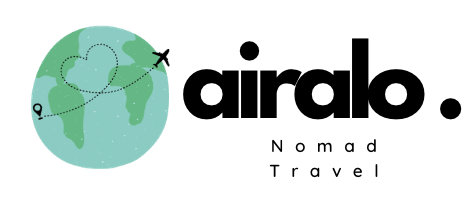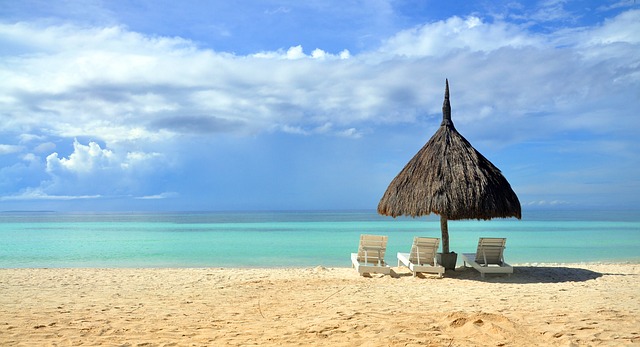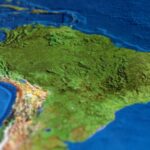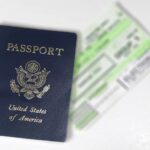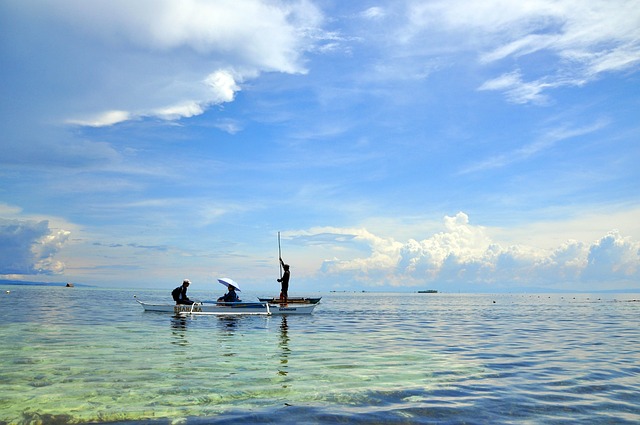
As a popular tourist destination in Southeast Asia, the Philippines is gradually attracting an increasing number of digital nomads and remote workers. To cater to this trend, the Philippine government is also considering launching a dedicated digital nomad visa to facilitate foreigners who want to live and work here. This article will detail the application requirements, advantages and disadvantages, visa types, application process, cost of living as a digital nomad in the Philippines and frequently asked questions about the Philippine Digital Nomad Visa.
1. Visa Overview: Philippine Digital Nomad Visa Background
- Global Digital Nomad Trends and the Philippines’ Potential
With the global popularity of remote working, many countries have realized the potential economic value brought by the digital nomad group and have launched special visa policies to attract professionals who can work freely around the world. The Philippines has also shown its unique appeal in this trend and is gradually formulating a visa policy suitable for digital nomads.- low cost of living: The low cost of living in the Philippines makes it an attractive option for digital nomads on a budget. For example, monthly rent for a one-bedroom apartment in big cities like Manila and Cebu is around $200 to $400, while in smaller island cities, rent can be even lower. In addition, daily expenses such as food, transportation and entertainment are also low, which can meet the needs of different budgets. This affordable living environment offers digital nomads the opportunity to save money and be flexible with their budgets.
- Suitable climate conditions: The Philippines has a tropical climate with warm weather all year round, especially for those who prefer a warm, sunny climate. The average annual temperature ranges from 25°C to 32°C, making outdoor activities possible all year round. After work, digital nomads can enjoy outdoor activities such as beaches and island adventures, integrate into nature, and experience a unique lifestyle.
- Rich natural landscape: The Philippines consists of more than 7,000 islands and is rich in natural beauty. The secluded beaches of Palawan, the crystal-clear waters of Cebu, and the chocolate mountains of Bohol are some of the natural wonders that make people forget to leave. For digital nomads looking to enjoy nature outside of work, the Philippines’ natural environment is an ideal place to relax and explore.
- Multicultural and friendly language environment
The Philippines’ multiculturalism and high English penetration rate make it more accessible to international digital nomads.- cultural diversity: The culture of the Philippines is a fusion of Southeast Asian native, Spanish colonial, American culture and local indigenous culture, and is highly inclusive. Different islands and regions have different cultural traditions. From harvest festivals to Holy Week processions, each festival is full of unique features, giving digital nomads rich opportunities for cultural experience. In addition, the warmth and friendliness of Filipinos also provide digital nomads with the convenience of integrating into the local community. Many digital nomads report that the warm reception of local residents adds a lot of fun to their travel life.
- High English penetration rate: English is one of the official languages of the Philippines and is widely used in daily life and business communication. Whether ordering food at a restaurant, renting an apartment, opening a bank account or dealing with urgent matters, most locals can communicate in fluent English, which greatly alleviates the inconvenience caused by language barriers. This language advantage makes the Philippines more competitive as a digital nomad destination, providing a convenient living environment for foreigners who do not speak the local language.
- Current visa options and the future of digital nomad visas
Although the Philippines has not yet officially launched a digital nomad visa, many remote workers have achieved long-term stays through existing visa types.- Current visa options: Currently, many remote workers enter the Philippines on a tourist visa and then renew their visa to extend their stay. The tourist visa in the Philippines allows a 90-day stay and can be renewed multiple times, up to about two years. In addition, some people apply for special work visas, which although the process is complicated and the application materials are strict, can provide a longer period of stay. However, these visas are not specifically designed for digital nomads. The procedures are cumbersome and lack flexibility, and they cannot fully meet the needs of digital nomads.
- Future Policy Outlook: The Philippine government is aware of the huge economic potential brought by the digital nomad visa and plans to launch a dedicated digital nomad visa in the future. The visa may allow for longer stays, more flexible entry and exit policies, and a streamlined visa application process to attract more highly skilled international remote workers. This policy will not only enhance the Philippines’ attractiveness as a digital nomad destination and boost the local economy, especially the development of tourism, rental, catering and other industries, but will also allow the Philippines to occupy a more favorable position in the digital nomad market in Southeast Asia.
2. Visa Type Selection: Temporary Alternatives
Since the Philippines has not yet launched a dedicated digital nomad visa, remote workers and digital nomads can legally reside and work through several existing visa types. Here are a few common alternatives:
- short term tourist visa
The short-term tourist visa is the most commonly used temporary visa option for remote workers who wish to stay in the Philippines for 30 to 59 days.- Scope of application: This visa is mainly suitable for tourism purposes, but according to the regulations of the Philippine Immigration Bureau, foreigners holding a short-term tourist visa can perform non-employment work in the Philippines, such as freelancing or online work. However, it is important to note that the short-term tourist visa does not allow applicants to participate in formal employment in the Philippines, and the visa itself is only suitable for short-term stay.
- Renewal and restrictions: Short-term tourist visas can be renewed through the Philippine Immigration Bureau. Usually each renewal can be extended for one month or more, but the cumulative stay time for each entry is limited. In addition, frequent renewals may result in increased scrutiny of the visa by the immigration authorities.
- limitation: The biggest limitation of the short-term tourist visa is that it is not designed for long-term stay, so it is not a stable option for those who plan to settle and work for a long time. While it provides an easy entry point for short-term work, eventually it will be necessary to switch to another visa type to ensure legal residence.
- Special Retirement Residence Visa (SRRV)
The Special Retirement Residence Visa (SRRV) is a visa provided by the Philippines for foreign retirees and those who wish to settle down for a long period of time.- Applicable people: This visa is suitable for foreigners who are over 35 years old, especially those who want to live in the Philippines for a long time and enjoy their retirement life. For some digital nomads, especially older groups, SRRV provides them with a legal long-term residence option.
- Visa features: The SRRV visa not only allows the holder to stay in the Philippines for a long time, but also allows multiple return trips. The visa holder can enter and exit the Philippines freely. This is very convenient for digital nomads who need to travel between the Philippines and other countries.
- financial requirements: Applying for an SRRV visa usually requires you to meet certain financial requirements, such as depositing a certain amount of bank deposit in the Philippines (the specific amount varies depending on the visa category), and you need to provide a health examination report.
- limitation: The SRRV visa is not available to those under the age of 35, and the visa application process requires certain fees and deposits, so it may not be the best choice for young digital nomads with limited budgets.
- Special Work Permit (SWP)
The Special Work Permit (SWP) is a visa provided to short-term workers that allows foreigners to engage in short-term work activities in the Philippines.- Applicable people: This visa is mainly suitable for foreigners who are engaged in short-term work in the Philippines, including short-term projects and contract work. This visa is a suitable option for digital nomads who plan to conduct business collaborations or work projects in the Philippines in the short term.
- Validity period: SWP is usually valid for 6 months, during which the holder can legally work and reside in the Philippines. However, it should be noted that SWP is not suitable for long-term work or settlement, so if you plan to live in the Philippines for a long time and continue to work remotely, SWP may not be suitable.
- limitation: The SWP visa is for short-term work and is only available for 6 months, which for long-term digital nomads means frequent renewals or switching to other visa types. If you live long-term or work remotely, SWP is not a stable visa option.
- Foreign investor or entrepreneur visa
The Foreign Investor or Entrepreneur Visa is suitable for those who intend to invest, start a business or open a company in the Philippines. This is a viable option for digital nomads interested in establishing a long-term residence in the Philippines through entrepreneurship or investment.- Applicable people: This visa is mainly for foreigners who plan to start a company, invest or participate in business activities in the Philippines. This visa is ideal for digital nomads with entrepreneurial intentions or who want to gain legal residency by running a local business.
- financial requirements: Applying for a foreign investor or entrepreneur visa requires meeting certain investment requirements, which usually require investing a certain amount into a business project in the Philippines. In addition, applicants also need to provide a business plan and relevant financial certificates to ensure that their investment will make a positive contribution to the Philippine economy.
- limitation: This kind of visa usually requires high financial ability and is not an easy choice for digital nomads with limited budget. Furthermore, the application process can be complex and involve a large amount of financial and legal documentation.
3. Potential application conditions for Philippine digital nomad visa (to be confirmed)
If the Philippines officially launches the digital nomad visa in the future, it is expected that the visa will have a clear set of application conditions to ensure compliance with Philippine immigration policies and attract high-quality remote workers. The following are possible application conditions. Although these conditions have not yet been fully confirmed, based on the experience of other countries and the policy trends of the Philippines, its general requirements can be foreseen:
- Proof of income: ensuring self-sufficiency
A key requirement for applying for a digital nomad visa is proof of stable income.- Income standard: The Philippine government may require applicants to provide bank deposit certificates or income documents from the past few months to prove that they have sufficient financial ability to support their life in the Philippines. Typically, this requirement is to ensure that digital nomads can be self-sufficient and do not need to rely on the local job market in the Philippines. It is expected that there will be some flexibility in this income standard, but generally speaking, the monthly income requirement may be between US$1,000 and US$3,000, and the specific amount may vary based on different visa categories and family status.
- source of income: The applicant’s source of income must be legal and stable, and should not rely on local employment in the Philippines. This means that applicants need to prove that their income comes from offshore companies or individual clients, rather than from employment in the Philippines. The purpose of this requirement is to prevent foreigners from engaging in unauthorized local work in the Philippines and ensure that visa holders only engage in legal remote work.
- Health insurance: Covering medical needs
Health insurance is often a requirement when applying for a digital nomad visa.- Medical insurance requirements: The Philippine government may require all digital nomad visa applicants to provide proof of valid health insurance before entering the Philippines. This requirement ensures that applicants can obtain medical coverage and avoid public health burdens during their stay in the Philippines.
- insurance coverage: Health insurance needs to cover basic medical care, hospitalization, emergency services, etc. In some cases, international medical coverage may also be required, especially when the applicant needs to return to his or her home country or travel to other countries. The medical system in the Philippines is dominated by private medical care, and medical costs are relatively high. Having comprehensive health insurance will help reduce personal burdens and ensure timely treatment when health problems occur.
- No criminal record: Ensure compliance with security policies
In order to maintain public safety in the Philippines, applicants may be required to provide proof of criminal record.- Requirements: Applicants are required to submit a criminal record certificate from their country of residence or residence to confirm that they do not have any criminal background. This condition helps ensure that applicants comply with Philippine immigration security policies and avoid introducing potentially risky individuals.
- background check: Certificates of no criminal record usually need to be provided by relevant government agencies (such as the Public Security Bureau or Immigration Bureau), and may require notarization or certification procedures to ensure the validity and authenticity of the certification documents. International background check results may also be requested for applicants from multiple countries, especially those remote workers who have lived in multiple countries.
- Proof of Remote Work: Confirm compliance with visa requirements
Another core requirement is proof that the applicant is working remotely and not locally in the Philippines.- Work contract or project certificate: Applicants need to submit copies of current or past employment contracts to prove that they have a legal working relationship with overseas companies or clients. The contract should clearly state that the nature of the work is remote work and not employment within the Philippines.
- Working mode confirmation: The remote work certificate may also include other documents, such as project cooperation agreements with customers, salary payment records, descriptions of work tasks, etc., to ensure that the applicant indeed meets the visa conditions and does not participate in local employment in the Philippines. Through this requirement, the Philippine government ensures that digital nomad visas are not misused as a tool to seek employment in the local labor market.
4. Analysis of visa advantages and disadvantages
advantage:
- Low cost of living: enjoy a cost-effective life
The cost of living in the Philippines is relatively low in Southeast Asia, making it especially suitable for digital nomads on a budget.- Accommodation cost: Depending on the area, digital nomads can rent comfortable apartments or shared accommodation at low prices. For example, in big cities such as Manila or Cebu, monthly rent outside the city usually ranges from US$300 to US$600, which can provide a cost-effective accommodation option for foreign remote workers.
- food cost: Street food and local restaurants in the Philippines are relatively affordable, and dining out often costs between $2 and $5, or even less. Even at more upscale restaurants, a hearty dinner will only cost about $15.
- daily expenses: In addition to accommodation and food, daily expenses in the Philippines are also very suitable for digital nomads. For example, the prices of transportation costs, entertainment and entertainment facilities are generally lower than those in European and American countries, providing relatively relaxed living conditions for remote workers.
- High popularity of English: no language barrier, easy to adapt
As the third largest English-speaking country in the world, the Philippines is one of the official languages, which makes it very easy for digital nomads to adapt to the living and working environment.- Barrier-free daily communication: In the Philippines, the vast majority of people can communicate fluently in English, especially in cities and tourist hotspots, where restaurants, shops, banks and other places can provide English services.
- Friendly working environment: Due to the popularity of English, foreign digital nomads can easily communicate with locals and other foreigners, which also helps digital nomads quickly integrate into the social circle. For some remote workers who rely on English, this is undoubtedly a huge advantage.
- education and healthcare system: Many educational institutions and hospitals in the Philippines also use English as the language of instruction and communication, further reducing the trouble caused by language barriers.
- Beautiful natural landscapes: the ideal place to live and relax
The Philippines has more than 7,000 islands, picturesque beaches and rich natural landscapes that attract countless digital nomads to come here for work and leisure.- tropical island paradise: Philippine islands such as Boracay, Palawan, Bohol, etc. are known as one of the most beautiful beaches in the world. White sand beaches, clear water, and coral reefs attract a large number of vacationers and diving enthusiasts.
- Plenty of outdoor activities: Not just limited to beaches, the mountains and jungles of the Philippines are also ideal places for hiking, rock climbing, skiing, cycling and other outdoor activities. Digital nomads can enjoy the tranquility and adventure of nature after work.
shortcoming:
- Insufficient infrastructure: poor experience in some areas
Although most major cities in the Philippines (such as Manila and Cebu) have relatively good infrastructure, in some more remote or rural areas, network and power supply are still unstable, which may affect the working experience of remote workers.- The network is unstable: While internet speeds have improved in major cities, connections are still slow and unreliable in some areas. Especially in islands and rural areas, network outages are more common, which may lead to a decrease in work efficiency.
- Electricity problem: There are intermittent power shortages or blackouts in some areas of the Philippines, especially during the rainy season or natural disasters, where power outages may last for several hours. For digital nomads who rely on electricity, it is especially important to choose an area with a stable power supply.
- The gap between urban and rural areas: In some big cities, such as Manila and Cebu, the infrastructure is relatively complete, but in many villages and small islands, public transportation, medical facilities and daily services are still relatively scarce, which may affect the life experience of digital nomads.
- Visa policy is unstable: high uncertainty
Currently, the Philippines has not launched a dedicated digital nomad visa, and there is some uncertainty about temporary alternative visa options (such as tourist visas, special work permits, etc.).- Visa renewal difficulty: Digital nomads usually come to the Philippines on a tourist visa or a work visa, but these visas are usually valid for shorter periods of time and require periodic renewal or transfer. This makes visa policy uncertain and adds to the challenges of long-term residence.
- Possibility of future changes: As other Southeast Asian countries have launched digital nomad visas, the Philippines may adjust its visa policy in the future, but the official has not yet announced a clear timetable or specific details. Therefore, digital nomads may need to face the inconvenience of visa changes.
- Visa application process is complex: Especially for remote workers who plan to live in the Philippines for a long time, they may need to deal with cumbersome application procedures, involving multiple department approvals, resulting in a certain cost of time and energy.
- Limited development of medical facilities: shortcomings of medical security
Although the Philippines has some modern hospitals in big cities, the overall medical level lags behind that of Western developed countries, especially the demand for high-end medical services.- Uneven distribution of medical resources: Medical facilities in the Philippines vary widely between urban and rural areas. Big cities like Manila and Cebu have some international-standard hospitals, but medical conditions in rural areas are poorer and may not provide high-quality medical coverage, especially for remote workers.
- PROFESSIONAL TREATMENT LIMITED: For some serious illnesses or conditions that require specialist treatment, medical facilities in the Philippines may not be able to provide an adequate level of treatment. For some complex or critical illnesses, patients may need to travel to other countries for treatment.
- Medical insurance needs: Therefore, when digital nomads live in the Philippines, they usually need to choose international medical insurance to cover possible medical expenses to cope with limited medical resources.
5. Cost of living as a digital nomad in the Philippines
The cost of living in the Philippines varies by region, especially between large cities and smaller cities or rural areas. Overall, the cost of living in big cities such as Manila and Cebu is relatively high, while the cost of living in other remote areas or small islands is relatively low. Here are detailed estimates of some major living expenses to help digital nomads better plan their budgets:
- rent:
- One bedroom apartment rent in the city: In the downtown areas of major cities such as Manila or Cebu, monthly rent for a one-bedroom apartment ranges from $300 to $700, depending on factors such as the apartment’s facilities, location, and floor.
- High-end apartment or luxury residential area: In high-end areas such as Manila’s BGC (Bonifacio Global City), Makati or Cebu’s IT Park, the rent for apartments will be on the high side, possibly close to or exceeding US$700 per month.
- more economical area: In areas farther from the city center, prices can be as low as $300-$400/month, suitable for digital nomads on a tighter budget.
- Shared apartment or shared accommodation: If you choose to rent with others, the cost will be cheaper. Generally speaking, the cost of a bed ranges from about $100-$250 per month, especially for remote workers who want to save money on housing expenses.
- One bedroom apartment rent in the city: In the downtown areas of major cities such as Manila or Cebu, monthly rent for a one-bedroom apartment ranges from $300 to $700, depending on factors such as the apartment’s facilities, location, and floor.
- FOOD:
- Local restaurant meals: Local food in the Philippines is relatively cheap, with average restaurant or street food prices around $2-$5 USD per meal. For example, a local rice side dish or fried rice usually only costs a few dollars, and many local restaurants offer traditional dishes (such as fried noodles, stews, fish) that are cheap and delicious.
- International restaurant meals: For digital nomads who prefer Western or international dining, restaurants can cost around $10-$20 USD per meal. Western food like pizza, burgers, and cafes, especially in busy areas of big cities, may be more expensive.
- self catering: Food expenses can be further reduced if digital nomads choose to cook their own meals. Fresh vegetables, fruits, meats, and dry goods are relatively cheap in the market, and a month’s cost of basic ingredients ranges from about $100 to $200, depending on personal eating habits.
- transportation:
- Taxi and motorcycle rental: Transportation in the Philippines is relatively cheap, with taxis in cities starting at about $1 USD and costing about $0.50 USD per kilometer. Motorbikes (such as Grab or local motorcycle rentals) are also often convenient, with prices starting at $0.50 USD, making the overall price more affordable.
- public transportation: Public transportation in Manila includes subways, buses, jeepneys, etc., and fares usually range from $0.20 – $1 USD. Although jeepneys are the most local form of transportation, they can be crowded during rush hours.
- Shared travel: When using a shared ride-hailing platform (such as Grab), the cost of a single trip is approximately $2-$5, depending on the distance traveled and traffic conditions.
- Monthly transportation expenses: If you use public transportation most of the time, monthly transportation costs range from approximately $30-$50. If you take taxis or shared rides frequently, transportation costs may rise.
- communication:
- mobile phone plan: Mobile networks in the Philippines are relatively cheap, with a variety of monthly plans to choose from. A basic prepaid card or monthly plan is around $10-$20/month for basic talk and data. Aimed at digital nomads with high data needs, plans typically cost between $30-$40 per month, with unlimited data or larger data available.
- home broadband: Home broadband costs approximately $20-$40 per month, depending on your broadband provider, speed and whether you choose additional services. In big cities, broadband services with faster network speeds are more common, but in some places far away from the city center, network speeds may be slower, so you need to carefully consider your choice based on your needs.
- Wi-Fi cafes and shared spaces: Many digital nomads choose to work in cafes or coworking spaces that offer free Wi-Fi. These places often offer reliable connections for working and socializing. Fees vary by location and amount spent, but generally range from $2 – $5.
6. Frequently asked questions for digital nomads in the Philippines
Digital nomads may face some unique challenges when living and working in the Philippines. Here are detailed answers to several frequently asked questions:
- Network and work environment:
- Network quality issues: Although the Philippines has wide Internet coverage, in some remote areas, network speed and stability may not be able to meet the work needs of digital nomads. The network infrastructure in big cities such as Manila and Cebu is relatively complete, and many high-end apartments and shared office spaces provide high-speed broadband services. If you live on a more remote island or in a rural area, you may experience unstable network connections, so it is recommended to choose places with reliable internet connections.
- shared office space: In big cities, it is a good choice to choose shared office spaces (such as international brands such as WeWork and Spaces, or local independent shared office spaces). These places provide high-quality working environments, fast network connections, and connections with other remote Networking opportunities for workers or local entrepreneurs. Coworking spaces typically cost between $100 – $300 per month, depending on location, amenities, and length of lease.
- home office environment: If you choose to work from home, you can consider renting an apartment with good office equipment (such as desks, chairs and high-speed broadband). Some high-end apartments provide a complete office environment, such as dedicated work areas, private offices, etc., which can help improve work efficiency.
- Security:
- Overview of security issues: There may be certain problems with security in some areas of the Philippines, especially in slums in some big cities or in remote areas on islands. Although the overall security in the Philippines is relatively good, it is recommended to pay attention to the following points when choosing a place to live:
- Choose a safe community: In major cities such as Manila, Cebu, and Davao, some higher-end communities (such as BGC in Manila, Makati District, IT Park in Cebu, etc.) usually have good security and are suitable for long-term living.
- Understand the local security situation: Before renting, you can learn about the security situation in the area through the Internet, local social media groups, or from foreigners who have lived there. Most digital nomads choose to live in apartments or villas with 24-hour security. These places usually have high security.
- Avoid going out alone at night: The safety situation in some areas is poor at night, especially in more remote areas. Therefore, be careful when going out at night and try to avoid walking or taking a taxi alone.
- personal security: The Philippines is a tourist country, and tourists and expats are often targets for robberies or thieves. Be especially careful when carrying valuables and try to avoid showing them off in public places, especially cell phones and wallets.
- Overview of security issues: There may be certain problems with security in some areas of the Philippines, especially in slums in some big cities or in remote areas on islands. Although the overall security in the Philippines is relatively good, it is recommended to pay attention to the following points when choosing a place to live:
- Cultural adaptability:
- cultural differences: The Philippines is a diverse country that combines Western and Asian cultural characteristics. Filipinos are generally friendly and welcoming, and expats often receive a warm welcome. However, living habits and cultural concepts may be different from those in the West or other Asian countries, and understanding these cultural differences can help you better integrate into the local society.
- Daily etiquette and interactions: Filipinos pay attention to etiquette and respect for others, especially when communicating face-to-face, politeness and smiling are very important. In everyday life, common greetings such as “kumusta” (hello) or “salamat” (thank you) are common ways to express friendliness and respect.
- concept of time: The Filipino concept of time may be more flexible. Compared with the punctuality of Western culture, Filipinos may be more accustomed to relatively loose time arrangements, which may be reflected in work and social situations. Therefore, digital nomads may need more patience and flexibility when working with or making arrangements with Filipinos.
- food culture: The Philippines has many unique delicacies, such as “Adobo”, “Sinigang” and “Halo-halo”, which are loved by locals. Although the catering culture in the Philippines has strong local characteristics, most waiters in restaurants and shopping malls can usually speak English and communicate with foreigners without any problems.
- Religion and festivals: The Philippines is a predominantly Catholic country, and many festivals and celebrations are related to religion, such as Christmas and Easter. Digital nomads living in the Philippines can learn about these holidays in advance, especially as local shops and services may close or adjust their business hours during the holidays.
7. Visa prospects
The Philippine government is actively considering launching a dedicated digital nomad visa. Although this policy has not yet been officially released, it is expected to be gradually implemented in the next few years. Here is a detailed outlook on the future development of this visa:
- Visa policy implementation process: The Philippines’ digital nomad visa is still in the planning and discussion stages. The government is looking at how to design a visa system that attracts international remote workers and is consistent with national laws and immigration policies. Although there is no specific launch date yet, with the globalization trend of remote work and the Philippines’ reliance on foreign labor, the policy is expected to be gradually implemented in the next 2 to 3 years. The Philippine government may learn from the successful experiences of other countries such as Estonia and Portugal to design a visa system that meets its own needs.
- Visa renewal and work flexibility: If the digital nomad visa is officially launched, it is expected that this visa will provide more flexible residence and work arrangements than existing work visas and tourist visas. Compared with traditional work visas, digital nomad visas may not require applicants to work for a local employer in the Philippines, ensuring that remote workers can work freely without geographical restrictions. In addition, a digital nomad visa may offer the advantage of long-term residency, offering a stay of one year or more and allowing for a more flexible renewal process, allowing digital nomads to choose whether to continue living and working in the Philippines based on their personal needs.
- Increased visa attractiveness: Once the digital nomad visa is officially launched, it will significantly enhance the Philippines’ attractiveness as a destination for remote workers. Digital nomads often prefer countries that offer easy visa application processes and flexible work environments, and the Philippines’ visa policies that address current restrictions and provide options tailored for remote workers will greatly enhance the country’s position among global digital nomads. visibility and competitiveness.
- Government’s optimization of infrastructure: To support this visa policy, the Philippine government has embarked on improvements in multiple areas, especially network infrastructure and public safety. These improvements will provide digital nomads with a more efficient and secure work environment. The Philippines is gradually increasing investment in broadband networks, especially in large cities and popular tourist destinations, in an effort to solve the problem of network instability and increase data transmission speeds. In addition, the government is also promoting stricter security policies to reduce the impact of crime and other unsafe factors and provide foreign workers with a more reliable living and working environment.
- life and work balance: The Philippines is blessed with natural landscapes and rich cultural resources, making it an ideal place to live and work. The government’s optimization initiatives will not only enhance the facilities and environment for remote working, but also facilitate digital nomads to achieve a perfect work-life balance in the Philippines. By increasing network infrastructure coverage and improving public safety standards, the Philippines hopes to attract more international remote workers and create a diverse, inclusive, and comfortable working and living environment.
in conclusion
The prospect of launching a digital nomad visa in the Philippines presents an attractive opportunity for global remote workers. With its low cost of living, pleasant climate, cultural diversity and high English proficiency, the Philippines has become an ideal destination for the growing number of digital nomads. Although a dedicated digital nomad visa has not yet been officially launched, existing visa options such as short-term tourist visas, special retirement residence visas and special work permits still provide flexible options for remote workers. However, as the number of digital nomads increases, the Philippine government is expected to launch a dedicated digital nomad visa in the near future to provide a more convenient visa process for remote workers who want to live and work in the Philippines for a long time.
In the future, if the launch of the digital nomad visa can meet the applicants’ income, health protection, no criminal record and other conditions, the Philippines will further enhance its competitiveness in Southeast Asia and become a hot spot for global digital nomads. At the same time, the Philippine government’s attention to this group will not only help promote local economic development, but also promote more international cooperation and innovation by attracting highly skilled remote workers. Therefore, digital nomads should pay close attention to future changes in the Philippines’ visa policy in order to seize this powerful opportunity in time.
